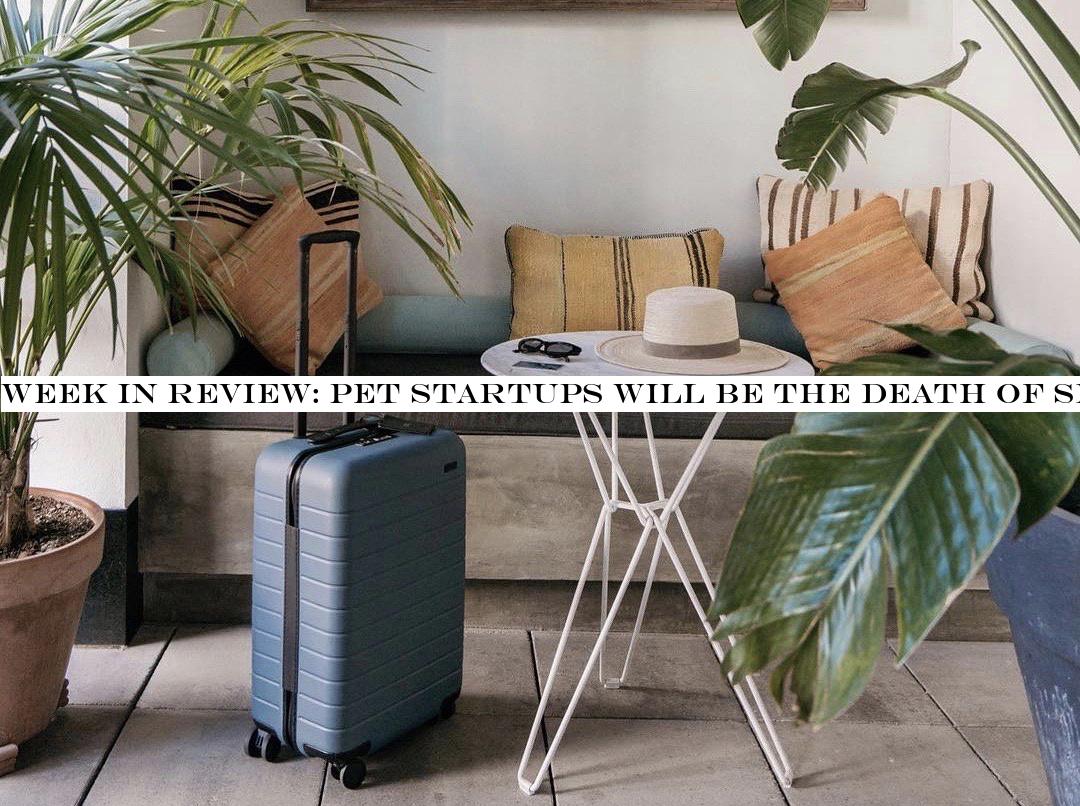INSUBCONTINENT EXCLUSIVE:
Thank you for welcoming me into your inboxes yet again.
I&m in Berlin where TechCrunch just pulled off another great Disrupt event, we&ve
got a lot of great Europe-focused startup content on the site so get to scrolling if your interest is piqued.
If you&re reading this on the
TechCrunch site, you can get this in your inbox here, and follow my tweets here.
The big story
Just as Pets.com symbolized the
ridiculousness that came to frame the tech industry preceding the Dotcom bubble burst at the start of the century, dog-walking startup Wag
might symbolize that SoftBank earthquaking investment overexposure may extend far beyond a one-time WeWork mistake.
This week, the WSJ
reported that SoftBank had tossed in the towel on Wag, selling off its massive &nearly 50% stake& in the startup
The report states that SoftBank sold its stake back to the startup at a valuation far below its previous $650 million value
SoftBank is walking away from its two board seats in the process.
Wag will be laying off &a significant amount of the remainder of its
workforce,& according to the report.
High-ambition startups stumble all of the time, but SoftBank money bag-swinging swagger has left a
handful of startups with dollar signs in their eyes and the desire to grow at a pace that they never dreamed of
When LA-based Wag closed its $300 million raise from SoftBank at the beginning of 2018, plenty of people wondered why on earth a dog-walking
startup needed that kind of money.
Shift forward to the end of 2019, and startups that have relied on connecting contractor labor with
phone-wielding consumers haven&t proven to be as capable in shifting into profitability with Wag seeming to be yet another example.
Needless
to say Pets.com and Wag really don&t hold much comparison when it comes to the broader impact
Pets.com was well-known largely because of its hilarious marketing overextension, Wag stumblings are far more impactful, especially as they
relate to the reputation of its Japanese benefactor which has significantly reshaped the venture capital market in Silicon Valley and around
the world.
Send me feedbackon Twitter@lucasmtnyor emaillucas@techcrunch.com
On to the rest of the week news.
Trends of the week
Here are a
few big news items from big companies, with green links to all the sweet, sweet added context:
Apple revamps parental controls on iOSApple
is giving its parental control tools for iOS new functionality
The new update in iOS 13.3 lets parents set limits over who their kids can talk to and text with during certain hours of the day.
Away CEO
steps down
One of the weirder sagas of the week was Away CEO Steph Korey stepping down from her role at the D2C luggage company
The step-down followed a long investigation in the Verge which basically chronicled how awful life was on Away customer service team which
painted a pretty ugly portrait of Korey leadership style
It was a rough article, but after Korey apology acknowledged that she had made some mistakes and would be trying to fix her management
style, most people assumed the saga had wrapped
She stepped down this week following what was reported to be board pressure to do so, turns out they had been wanting to replace Korey and
the negative press was the excuse they needed.
GAFA Gaffes
How did the top tech companies screw up this week? This clearly needs its own
section, in order of badness:
An iOS bug is locking up iPhones:[An iOS bug in AirDrop lets anyone temporarily lockup nearby iPhones]
Image:
Bryce Durbin/TechCrunch
Extra Crunch
Our premium subscription business had another great week of content
Our good friend Alex Wilhelm (who hired me as an intern four years ago!) is back at TechCrunch and has fired up a new series on Extra Crunch
Here his first post on the new hot club to join.
The $100M ARR Club
&…Firms with valuations that their revenues can&t back are in similar
In the post-WeWork era, some unicorns are starting to look a bit long in the tooth
I suspect that the companies in most danger are those with slim revenues (compared to their valuations), poor revenue quality (compared to
software startups) or both.
That said, there is a club of private companies that arereally something, namely private ones that have managed
to reach the $100 million annual recurring revenue (ARR) threshold
It not a large group, as startups that tend to cross the $100 million ARR mark are well on the path to going public…&
Sign up for more
newsletters including my colleague Darrell Etherington new space-focused newsletter Max Q here.

